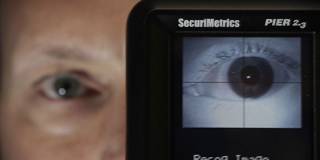Social-protection programs are supposed to do just what the name implies: protect those segments of society that are most in need. Demanding that beneficiaries effectively renounce their rights to personal privacy and data protection, as many governments are doing, amounts to just the opposite.
MEXICO CITY – In recent decades, social assistance programs around the world have been strengthened to the point that they now benefit more than 2.5 billion people, usually the poorest and most vulnerable. But rising pressure to apply biometric technology to verify beneficiaries’ identities, and to integrate information systems ranging from civil registries to law-enforcement databases, means that social programs could create new risks for those who depend on them.
Private companies, donor agencies, and the World Bank argue that the application of biometric tools like iris and fingerprint scanning or facial and voice recognition, together with the integration of databases, will boost efficiency, combat fraud, and cut costs. And many governments seem convinced.
While there is no systematic information available on the use of biometric technology in social-assistance schemes, a look at certain flagship programs suggests that it is already on the rise. In South Africa, 17.2 million beneficiaries of social grants receive biometric smart cards. In Mexico, the 55.6 million beneficiaries of Seguro Popular (public health insurance for the poorest citizens) must provide theirbiometric data to the authorities.

MEXICO CITY – In recent decades, social assistance programs around the world have been strengthened to the point that they now benefit more than 2.5 billion people, usually the poorest and most vulnerable. But rising pressure to apply biometric technology to verify beneficiaries’ identities, and to integrate information systems ranging from civil registries to law-enforcement databases, means that social programs could create new risks for those who depend on them.
Private companies, donor agencies, and the World Bank argue that the application of biometric tools like iris and fingerprint scanning or facial and voice recognition, together with the integration of databases, will boost efficiency, combat fraud, and cut costs. And many governments seem convinced.
While there is no systematic information available on the use of biometric technology in social-assistance schemes, a look at certain flagship programs suggests that it is already on the rise. In South Africa, 17.2 million beneficiaries of social grants receive biometric smart cards. In Mexico, the 55.6 million beneficiaries of Seguro Popular (public health insurance for the poorest citizens) must provide theirbiometric data to the authorities.